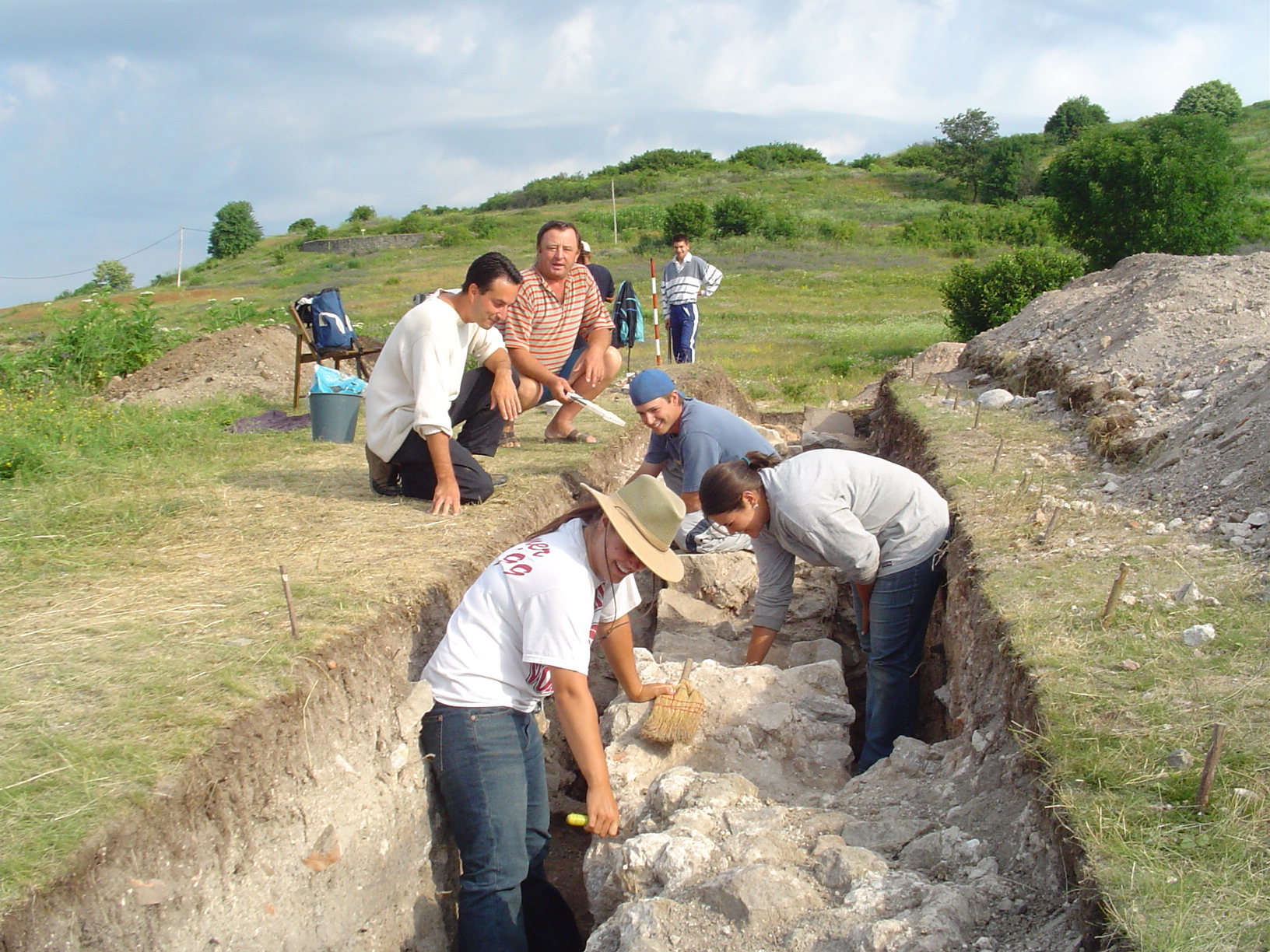
As the Adjunct Representative on WCCFT’s Executive Committee (E-board), I thought it would be fitting to include a regular section in FTConnect dedicated to adjunct faculty. I am grateful to my Executive Committee colleagues for their encouragement, and, in particular, I would like to thank Richard Courage for working with me to develop this concept.
My background is in classical archaeology (yes, I was partially motivated by Raiders of the Lost Ark!). Little did I know when I began my Ph.D. in Archaeological Sciences that I would remain in Europe for 20 years. At first, because my research interests focus on the ancient Romans, I lived in Italy. I participated and eventually directed excavations at many sites, including Pompeii. I worked for the American Academy in Rome and a small number of Study Abroad campuses in Rome. I began my teaching career as an adjunct professor, but was hired as a full-time professor at John Cabot University and served as the Chair of the Department of Art History and Studio Arts for 4 years.

In 2012, I was offered a position in Bulgaria to direct the American Research Center in Sofia. Already by 2006, my research had taken me to parts of the Balkans; therefore, this seemed to be an excellent opportunity. In 2018, my wife and I decided it was time to return to the USA and despite the poor job market for Humanities professors, I was fortunate to be hired as an adjunct professor at WCC and three other nearby colleges. I teach a range of introductory and intermediate classes in history, art history, and classical studies.
Like most of you, I have always felt that the practice of American colleges relying so heavily upon part-time faculty is unjust. From the point of view of the adjunct faculty, we are overworked, underpaid, and have no safety net. Students–the people colleges serve–are also negatively impacted because we are unable to dedicate the 150% of attention that they deserve.
When I began teaching for WCC and the other local colleges, I joined the faculty unions. I browsed the emails sent by the union leaders and sat in on a WCCFT meeting or two. But having to teach 7-8 classes each semester in order to earn a semblance of a living, I did not get seriously involved.
My mindset changed in 2020/21. In the midst of the Covid crisis, I found myself unemployed. I did not have summer or winter teaching assignments and I was unable to find seasonal employment due to the lockdown. I applied for unemployment benefits, but in dealing with the NY State Labor Department, I was informed in harsh legal language that because the colleges provide us with “reasonable assurance” of teaching in the next semester, I was ineligible. This shock highlighted my plight and that of all adjunct faculty. We love to teach, advise, and support students. Most of us have terminal degrees and have been working for years.
In the spring of 2021, I learned about upcoming WCCFT elections and decided to add my name to the list of candidates. After a few weeks, I was informed that I would be the new Adjunct Representative on the Executive Committee.
I was thrilled and terrified. I spoke with veteran adjuncts who reinforced both poles of my initial reaction. At the first WCCFT meeting, I was somewhat timid, but saw immediately that colleagues on the E-board were all very welcoming and determined. Each time we met, I learned more about the issues that face all faculty members and I felt more comfortable with my role. And, at the end of 2021, I was invited to join the WCCFT negotiation team, which negotiates the terms of a new collective bargaining agreement with the College Administration.
Although I initially joined the E-board in order to support adjunct faculty, I am proud to know that my union leadership role affects all members of WCC’s faculty–full-time and contingent, teaching and non-teaching.
Whether or not you are a member of the union, the WCCFT has “won” a great many victories for all WCC teaching and non-teaching faculty. Some of the victories that apply to adjuncts are:
- Salary increases bargained with each new contract
- The right to grieve for infringements of our contractual rights
- Paid sick/personal leave time for teaching and non-teaching faculty
- Limits on class sizes
- Free WCC courses (1 for junior adjuncts and up to 8 credit hours for senior adjuncts)
- Academic freedom
- Professional Development Funds (2 deadlines per year for adjuncts)
- Covid safety measures
If you are not already a WCCFT member, please join, using this convenient form” http://www.sunywccft.org/membership-form/. The greater our numbers, the more effectively we can conduct our work.
Before I conclude, I would like to congratulate the 19 recipients of last semester’s Professional Development Funds, which includes 7 adjunct professors: Theresa Nugent, Jeanine Patsko, Hulya Sakarya, Eva Suchow, Jolanta Tremaroli, Jill Wallen, and Rachel Wineberg.
In future editions of FTConnect, I will provide WCCFT updates relevant to adjunct faculty. I would especially like to highlight our professional achievements. Please reach out to me at ericdwccft@gmail.com with any union-related concerns or to send me news items for this newsletter.
In solidarity, Eric
Eric C. De Sena
WCCFT Adjunct Representative
Member of the WCCFT Negotiation Team
